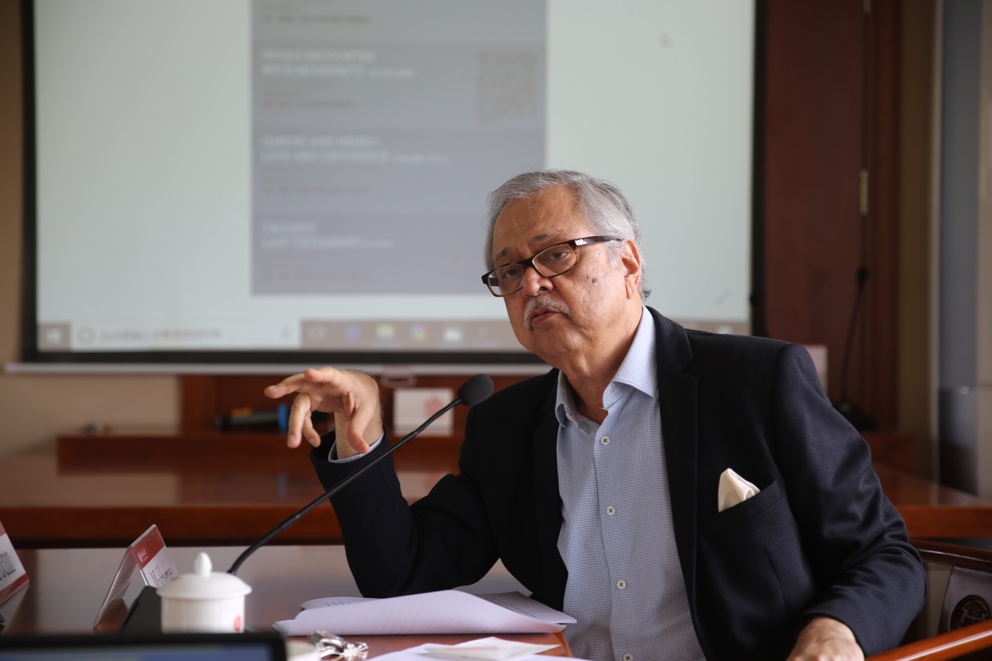Peking University, May 28, 2019: Rudrangshu Mukherjee, president of Ashoka University, visited Peking University from April 14 to 27, during which he conducted a series of five lectures at the Institute of Humanities and Social Sciences of Peking University covering topics ranging from critical moments in India's history to famous historical figures such as Gandhi and Nehru.
Rudrangshu Mukherjee
The first speech, entitled “The Revolt of 1857 in India”, was held on the afternoon of April 15. In his speech, Professor Mukherjee explained the rise of the Indian revolution to his audience, giving a well-rounded analysis on other factors and issues that came along with the uprising such as the spread of rumors and the dissemination of prophecies. His speech revealed the violent nature of the uprising and the pain it inflicted on all parties.
Professor Mukherjee, in the second speech “The Antinomies of Early Liberalism in India” held on the afternoon of April 17, illustrated the contradictions in India’s early liberalism from the perspective of education and justice with two historical events: the dismissal of the teacher, Henry Louis Vivian Derozio, and the disagreements on Ilbert Bill.
On April 19, the third speech “India’s Encounter with Modernity” discussed how the concept of modernity was introduced to the British-ruled India in the 19th century. Three excellent figures at that time– Rammohun Roy, Ishwar Chandra Vidyasagar, and R.C. Dutt – contributed themselves to the dissemination of modernity in India. However, Gandhi, differing from the above three, thought that India should not be influenced by western civilization and industrialization.
The last two speeches were held on April 24 and 25. Professor Mukherjee in the fourth speech introduced to the audience the correspondence between Gandi and Nehru, in which love and disagreement can be observed as coexistent. In the fifth speech, Professor Mukherjee reviewed the trend of disenchantment among Indian intellectuals at the end of the 19th century, and cited Rabindranath Tagore's viewpoint that a brand-new Eastern civilization might possibly come into being in the future.
In a recent interview, Professor Mukherjee stated that he believes that the impact of Indian culture on the world is largely reflected in the teachings of Buddhism and its dissemination of "non-violence resistance” policies advocated Mahatma Gandhi. Professor Mukherjee also stressed that the more platforms there are for cultural dialogues, the more opportunities there would be for different cultures to exchange and learn from each other, which is a big step for achieving harmony between different countries.
Written by: Zhai Xinjia, June Tan Rui Min
Edited by: Hu Rong, Wang Nini
Source: PKU News (Chinese)
